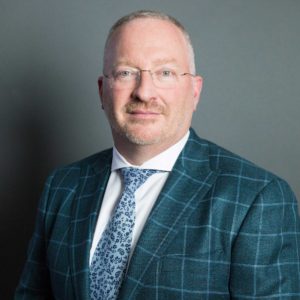

Rural America has always existed with some mystique – with its own culture and way of life outside of big cities. Historically, life in the country has come with economic hardship, enduring toughness and a sense of honor in having what is hard-earned and worth defending.
America’s rural communities are largely made up of close-knit families, generations of farmers and business-owners who have chosen a different pace and lifestyle than those who favor more metropolitan and urban settings. It is a “do-it-yourself” culture – but there comes a time in our lives as we age when we have to rely on others – particularly with our healthcare needs. Rural seniors in Texas’ east and west regions are no exception and they are no less deserving of quality health care than others with a different zip code.
I own and operate 30 skilled nursing communities in Texas, 20 of which are located in rural areas. When I developed my business model, I intentionally looked to acquire rural nursing homes with the goal of making capital improvements, installing the latest healthcare technologies and implementing state-of-the-art care strategies to bridge the urban vs. rural gap in quality long term care.
Early on, I invested in systems that would reduce infections, improve sleeping conditions for our residents, and provide healthy choices for nutritional needs. I set out to change the paradigm, and I think we’ve made some strides.
That said, those of us providing rural healthcare are all faced with daunting statistics such as these:
- Rural Americans are more likely to die from heart disease, cancer, unintentional injury, chronic lower respiratory disease and stroke than their urban counterparts.
- There is a higher prevalence of cigarette smoking, high blood pressure and obesity.
- Rural residents have less access to healthcare, are less likely to have health insurance and more likely to qualify for Medicaid.
- Citizens from rural communities live in a higher rate of poverty.
- They have to drive much longer distances to access health care.
- Tragically, the CDC cites opioid overdose deaths as 45% higher in rural areas, yet urban patients have easier access to treatment facilities.
- In the last 20 years, Texas has seen 24 rural hospital closures which only widen the health care access divide for patients requiring long or short term care or often skilled care for the duration of their lives.
Aging in rural America can increase the vulnerability any senior feels from losing independence. If family has moved away or the only family caregiver also has a full-time job, seniors needing skilled care must have a place to go that isn’t hours from home or loved ones.
Skilled nursing facilities in many rural towns serve as the biggest employer of jobs, markedly contribute to the local tax base, and provide the only 24/7 skilled nursing services in the community – sometimes the entire county. We have fewer physicians available in rural areas to serve as Medical Directors of our skilled nursing facilities so we must offer salaries comparable to what they can demand in cities as incentive to drive to distant locales and care for seniors. The same goes for our workforce that requires wages similar to those they can receive in bigger markets. It is incorrect to think rural long term care providers pay less for anything – because we’re rural.
Much of the discussion on rural health care continues to focus on hospital care, much needed preventive care and even rural emergency hospitals – the latter of which are targeted for a new Medicare provider type with proposed enrollment and payment policies from the Centers for Medicare and Medicaid Services (CMS). All those settings are critical and in need of attention. But so is rural long term care.
Rural long term care should not be ignored or take a backseat to other rural health care settings. This sector is just as critical as hospitals and emergent care settings but is not considered with the same focus or intention by CMS. We care for the vulnerable and in many cases provide the last home they have. Rural seniors and the providers who care for them require targeted policies that acknowledge resources needed in other rural settings are also needed in long term care. Recognizing skilled nursing care equally to other rural health care settings is fair and the right thing to do.
Mark McKenzie is a native Texan and the founder and CEO of Focused Post Acute Care Partners based in Fort Worth, Texas.





